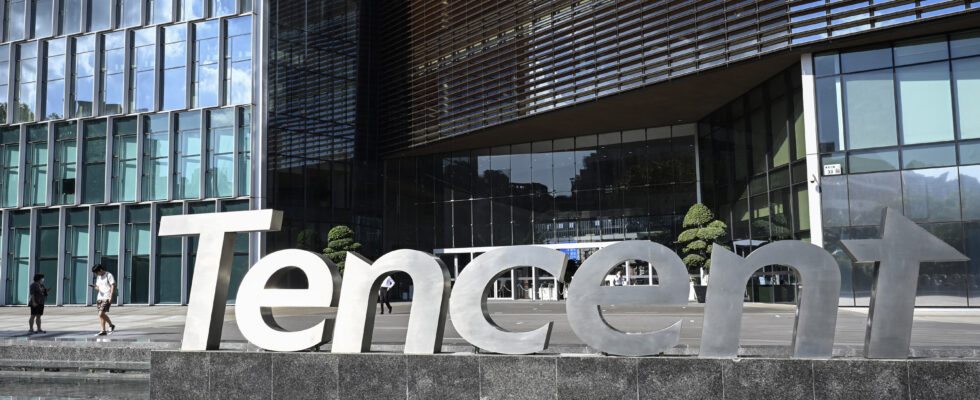(BFM Bourse) – The Chinese authorities have decided to take new restrictions targeting players’ spending on games and online content. This weighed down the shares of groups in the sector including the juggernaut Tencent. On the Paris Stock Exchange, Ubisoft also fell.
It is a sword of Damocles that hangs almost permanently over certain listed Chinese companies: political risk. In recent years, Beijing has regularly implemented sometimes virulent restrictions, which have resulted in the fall of stocks in the sectors concerned. This was, for example, the case for large tech groups in 2020 or private education companies in 2021.
Video games, an industry which has regularly found itself in the sights of the Chinese authorities (consoles were banned from sales for almost fifteen years, until 2015), finds itself targeted once again.
Beijing issued a draft of new rules this Friday which aim, to simplify, to prevent online players from spending too much time and money. According to Agence France Presse, these new measures concern in particular the purchase of credits during the session, in order to curb the phenomenon of compulsive gambling.
>> Access our exclusive graphic analyses, and gain insight into the Trading Portfolio
Ubisoft in tough times on the Paris Stock Exchange
Following this announcement, Tencent fell in Hong Kong, losing 12.3% at the close on Friday. The group wiped out nearly 420 billion Hong Kong dollars of market capitalization, or just under 50 billion euros.
Chinese digital giant, Tencent has numerous internet activities, the best known of which is certainly WeChat, a hyper-popular instant messaging service in China. But the group is also very present in online gaming, particularly via its QQ Games portal. He also owns Riot Games, a company known for the game League of Legends. In France, Tencent is a shareholder in Ubisoft (9.9% of the capital) and has joined forces with the group’s founding family, the Guillemots, by forming a concert of shareholders.
Ubisoft’s stock also seems to suffer, indirectly, from the Chinese authorities’ project. On the Paris Stock Exchange, the title of the French video game publisher lost 4.9% this Friday around 11:20 a.m.
“The market reaction seems exaggerated, with China representing a fairly small share of Ubisoft’s revenues, perhaps around 5%. But it is true that Ubisoft has agreements with Tencent to develop adaptations of its franchises on mobile , which was the case last year with Assassin’s Creed. This therefore creates a factor of uncertainty,” explains an analyst. This financial intermediary believes that the price reductions for the game “Avatar: Frontiers of Pandora”, reported in recent days by the specialized press, could also weigh on the title this Friday. “That may mean sales aren’t fantastic,” he suggests.
A model upheaval?
Besides Tencent and Ubisoft, other groups have suffered on the stock market. NetEase Inc, a Chinese company which notably develops mobile games like Marvel Super War, plunged 24.6% on the Hong Kong Stock Exchange. The Korean developer (but listed in Tokyo) Nexon, which derives part of its revenues from China, plunged 11.9%.
The new rules being considered by Beijing will deal “a blow to the overwhelming majority of games in China, except for those that sell copies,” Zeng Xiaofeng, vice president of Niko Partners, told Bloomberg. “Companies will need to review their monetization models, including how they charge different categories of players,” he adds.
“It is difficult to quantify the impact at this stage, but the draft rules raise concerns about the monetization prospects of gaming companies,” says Daisy Li, fund manager at EFG Asset Management HK Ltd, also interviewed by the ‘agency. “With these rules, player behavior could change and companies’ daily active user volume could suffer,” she warns.
Julien Marion – ©2023 BFM Bourse
Are you following this action?
Receive all the information on UBISOFT ENTERTAIN in real time:
